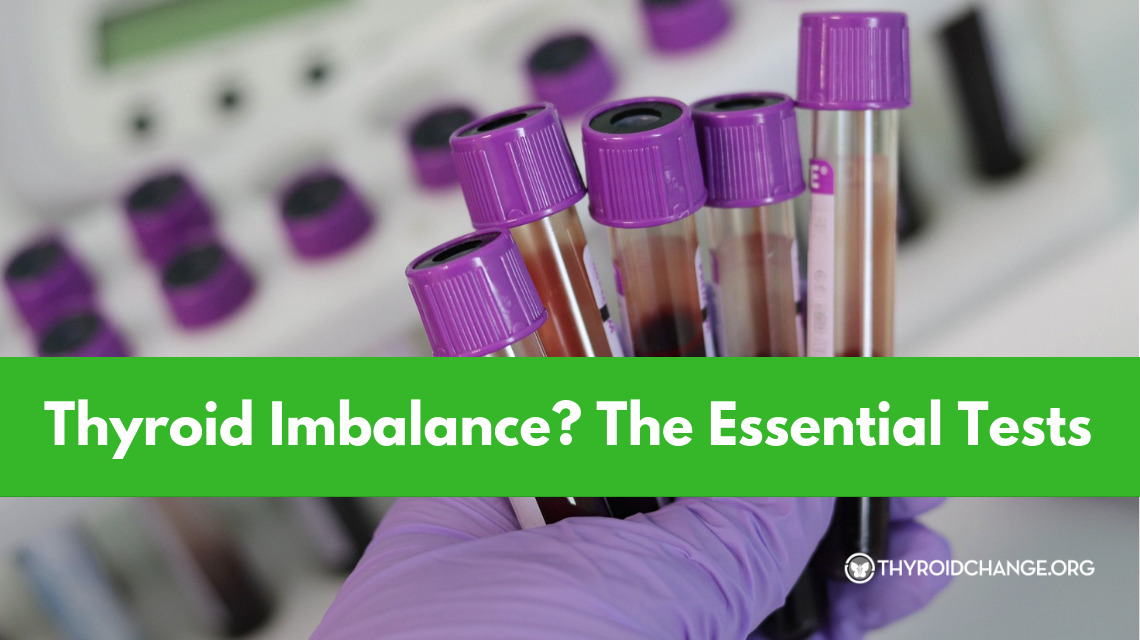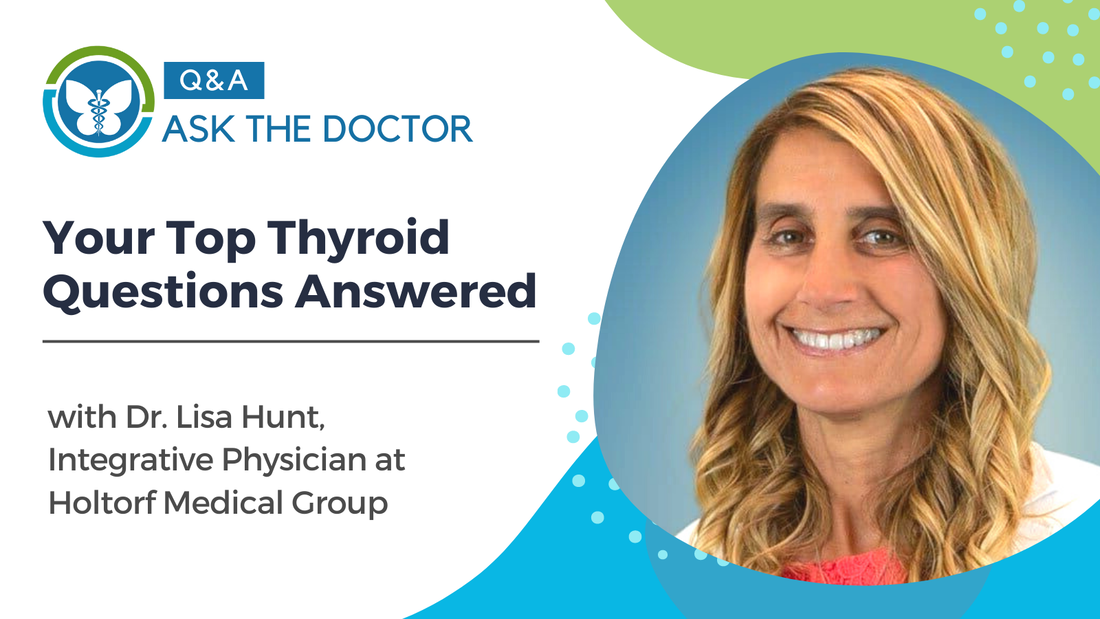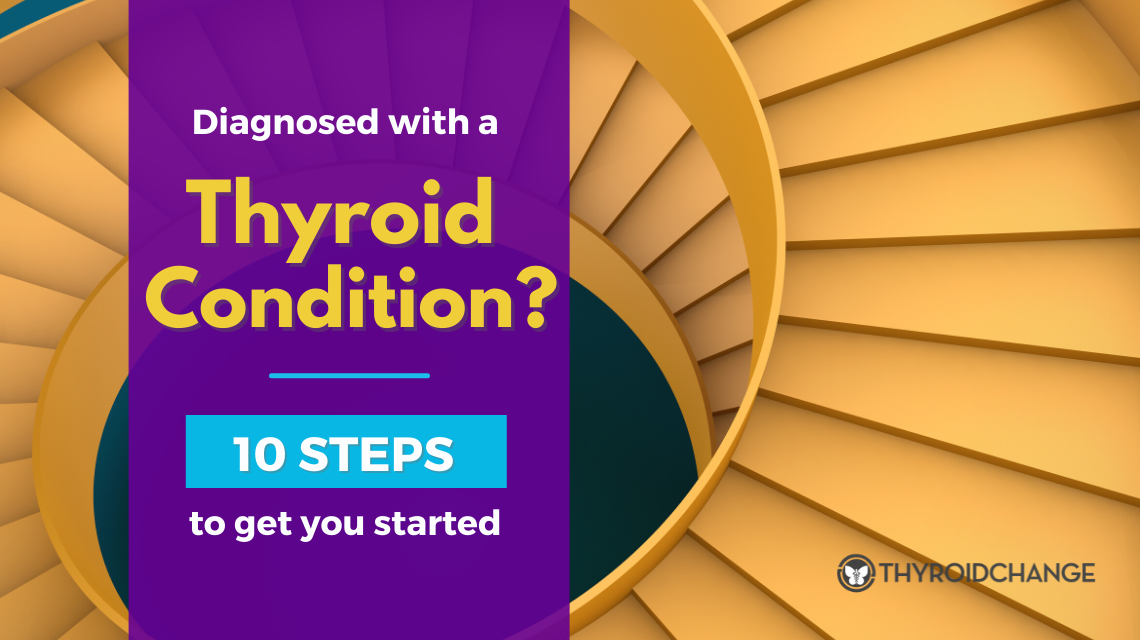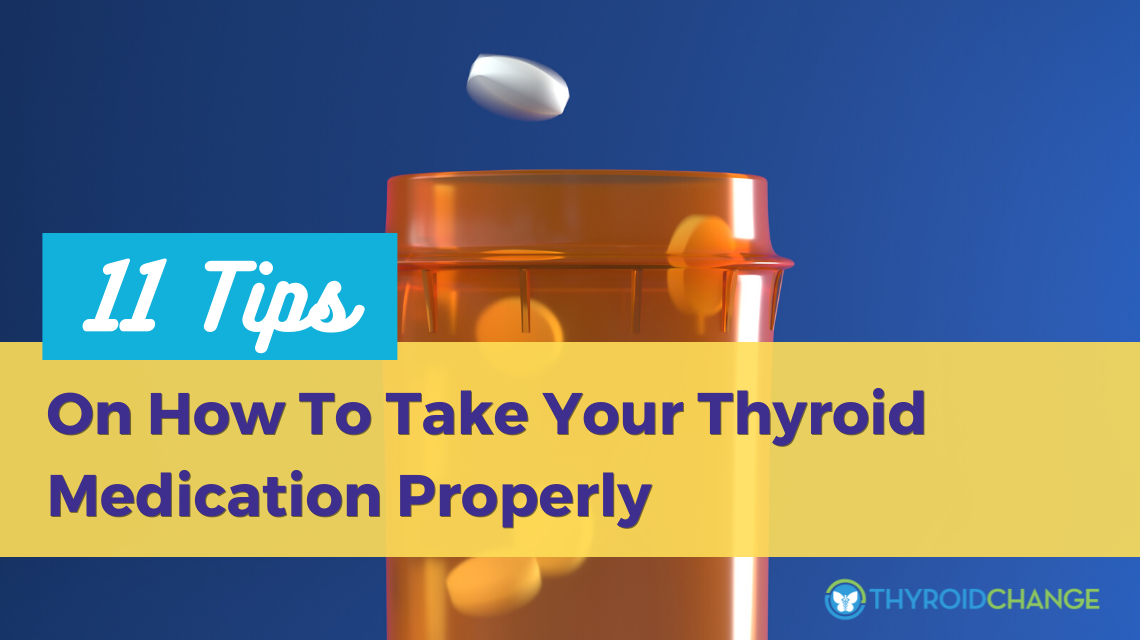15th Jun 2022
The Best Tests for Your Thyroid Condition

When diagnosing and treating individuals with symptoms of thyroid hormone imbalance, many medical professionals will refer exclusively to the TSH laboratory test. Patients who have symptoms despite a “normal” TSH test will discover that there are medical professionals and patients advocating for testing beyond TSH with a full thyroid panel. Read the article below for the best thyroid hormone tests to diagnose and monitor your thyroid condition, whether you are hypothyroid, hyperthyroid, have Graves’ disease or Hashimoto’s, or if you are a current or previous thyroid cancer patient.
1. TSH (Thyroid Stimulating Hormone)
The Pituitary Hormone
Thyroid Stimulating Hormone (TSH) is a hormone, or chemical messenger, released by the pituitary gland which signals the thyroid gland to create more thyroid hormone. The amount of this hormone is measured by the TSH laboratory test. A TSH level above (hypothyroid) or below (hyperthyroid) the “normal” range is required by some medical professionals before initiating a treatment plan with the goal of keeping the TSH level within this range.
Often considered the diagnostic “gold standard” of thyroid hormone imbalance, research continues to demonstrate that the TSH test is not a sufficient measure of overall thyroid function and can be unreliable.
Therefore, a patient with a thyroid hormone imbalance, clear symptoms, and an “in-range” TSH level may not be properly diagnosed or treated if a medical professional relies on the TSH lab test exclusively.
Also, the TSH level can be suppressed below range when treated with T3-containing medications and must be considered when creating a treatment plan [1-8].
______
2. Free T4 (Free Thyroxine)
The Storage Hormone
Thyroxine, T4, is an inactive, storage comprised of tyrosine and four iodine molecules made by the thyroid gland; hence the four in T4. The body uses enzyme action to strip one of the iodine molecules creating either the active triiodothyronine, T3, or inactive reverse triiodothyronine, RT3, molecules.
T4 is either bound to proteins which prevents them from entering tissues, or unbound, which does not restrict their movement and are “free”.
The Free T4 laboratory test measures the amount of these “free” or unbound T4 hormone levels available to your cells in your bloodstream.
Even if the values are within the reference range, values below the optimal range is grounds for possible hypothyroidism. Elevated levels are grounds for hyperthyroidism [9-10].
______
3. Free T3 (Free Triiodothyronine)
The Active Hormone
Triiodothyronine, T3, is an active thyroid hormone which is needed by every cell in the human body. It is comprised of tyrosine and three iodine molecules as the name suggests.
Small amounts of T3 are made by the body, however, most is created through the conversion of T4 into T3 by enzyme action as needed by the body. Therefore, T4 can be referred to as a “storage” hormone for the more active T3 stored “inside” of the T4 molecule.
T3 can be bound or unbound to proteins which can restrict its activity similar to T4. T3 needs to be free and unbound to reach its corresponding receptor sites within tissues.
The Free T3 test measures the amount of unbound or “free” T3 available in your bloodstream and available for your cellular needs.
Even if the values are within the reference range, values below the optimal range is grounds for possible hypothyroidism. Elevated levels are grounds for hyperthyroidism [9-10].______
4. Reverse T3 (Reverse Triiodothyronine)
The Blocking Hormone
If there is a disturbance in the process of converting T4 to T3, the result may be a hormone also made with tyrosine and three iodine molecules called Reverse T3 due to its mirror appearance to T3.
Due to their structural similarity, Reverse T3 can block a T3 receptor site, and prevent the needed T3 molecule from reaching its receptor site.
This competition at the receptor site can cause cellular hypothyroidism and result in symptoms. Therefore, Reverse T3 is a marker for the inhibition of T3 uptake into the cells and/or a marker of increased T4 to Reverse T3 formation.
The Reverse T3 test measures how much is in your bloodstream and becomes even more meaningful when compared to the Free T3 value.
Increased Reverse T3 levels can occur due to many common issues, including but not limited to with high levels of stress, inflammation and infection. Patients with high levels of Reverse T3 often need to work with an experienced physician who may use T3-containing medication to lower their Reverse T3 and optimize their Free T3: Reverse T3 ratio [11-17].______
5. Thyroid Antibodies (anti-TPO, TgAb, TRAb, TSI, TBII)
Detecting Autoimmunity
In an effort to protect your body from foreign invaders, your immune system will create antibodies to attack bacteria and viruses. However, individuals with autoimmune thyroid disease have a dysfunctional immune system which creates antibodies that either stimulate or attack the thyroid gland.
The most common thyroid antibody tests are thyroglobulin (TgAb), thyroid peroxidase (TPOab, anti-TPO), and thyroid receptor (TRab). Positive anti-thyroid peroxidase and/or antithyroglobulin antibodies in a patient with hypothyroidism make a diagnosis of Hashimoto’s thyroiditis; whereas, presence of thyroid receptor antibodies may indicate Graves’ disease [9-10].
TSI (thyroid stimulating immunoglobulin) is another blood test used to identify the presence of Graves’ disease in those with hyperthyroidism or suspected hyperthyroidism. An abnormally high level of TSI is indicative of this autoimmune disease.
TBII (
thyrotropin binding inhibitory immunoglobulin) is another test that can be measured and it detects the
ability of antibodies to inhibit TSH binding to its receptor. It can also reflect the presence of either or both the stimulatory and inhibitory immunoglobulin classes.
______
What Are The Optimal Lab Values?
Although each of these values will be placed within a range by the laboratory, there is a difference between an optimal value and being simply in-range. Work with your doctor to optimize your thyroid hormones for the greatest symptom relief using optimal ranges as a guide.
The goal is symptom relief and some physicians find patients who are outliers of the optimal range, therefore using symptoms and clinical presentation for diagnosis is also key.Please visit the ThyroidChange website for further information on optimal ranges and to find a doctor who meets the criteria listed on the page. Help is out there.To order a thyroid panel beyond just TSH, visit LetsGetChecked. They are a trusted company with a streamlined app and an easy, home-kit finger prick system, plus it’s affordable! Use code “ThyroidChange” for 20% off.
Note: This page may contain affiliate links and ThyroidChange may earn a small commission for reviews on comprehensive thyroid care.

References
1. Becker DV, Bigos ST, Gaitan E, Morris JC, Rallison ML, Spencer CA, Sugarawa M, Van Middlesworth L, Wartofsky L. Optimal use of blood tests for assessment of thyroid function. Journal of the American Medical Association. 1993 Jun 2; 269: 273 .
2. Kalra S, Khandelwal, SK. Why are our hypothyroid patients unhappy? Is tissue hypothyroidism the answer? Indian Journal of Endocrinology and Metabolism. 2011 July; 15 (Suppl2): S95–S98.
3. Chopra IJ. Euthyroid sick syndrome: Is it a misnomer? Journal of Clinical Endocrinology and Metabolism. 1997; 82(2):329–34.
4. Schwartz E, Morelli V, Holtorf K. Hormone Replacement Therapy in the Geriatric Patient: Current State of the Evidence and Questions for the Future. Estrogen, Progesterone, Testosterone, and Thyroid Hormone Augmentation in Geriatric Clinical Practice. Clinics in Geriatric Medicine. 2011; 561–575.
5. De Los Santos ET, Mazzaferri EL. Sensitive thyroid-stimulating hormone assays: Clinical applications and limitations. Comprehensive Therapy. 1988; 14(9): 26-33.
6. Alevizaki M, Mantzou E, Cimponeriu AT, Alevizaki CC, Koutras DA. TSH may not be a good marker for adequate thyroid hormone replacement therapy. Wiener klinische Wochenschrift. 2005; 117/18:636-640.
7. Holtorf, K. Reverse T3 is the best measurement for tissue thyroid levels. Report on the 2005 study, Thyroid hormone concentrations, disease, physical function and mortality in elderly men. Holtorf Medical Group. www.holtorfmed.com/download/thyroid-fatigue-and-weight-loss/Reverse_T3_is_the_Best_Measurement_of_Tissue_Thyroid_Level.pdf.
8. Shomon, M. Thyroid Blood Tests. About.com. http://thyroid.about.com/od/gettestedanddiagnosed/a/bloodtests.htm.
9. American Thyroid Association. Thyroid Function Tests. https://www.thyroid.org/wp-content/uploads/patients/brochures/FunctionTests_brochure.pdf
10. Living with Graves’ Disease. http://www.livingwithgravesdisease.com/diagnosis/lab-tests.
11. Becker RA, Wilmore DW, Goodwin CW Jr, Zitzka CA, Wartofsky L, Burman KD, Mason AD, Pruitt BA. Free T4, Free T3, and Reverse T3 in Critically III, Thermally Injured Patients. Journal of Trauma-Injury Infection & Critical Care. 1980 Sep;20(9):713-21.
12. De Los Santos ET, Mazzaferri EL (1988). Sensitive thyroid-stimulating hormone assays: Clinical applications and limitations. Comprehensive Therapy. 1988; 14(9): 26-33.
13. van den Beld AW, Visser T, Feelders R, Grobbee R, Lamberts, WJ. Effect of Exogenous Thyroid Hormone Intake on the Interpretation of Serum TSH Results. The Journal of Clinical Endocrinology & Metabolism. 90 (12): 6403-6409.
14. Chopra IJ, Solomon DH, Hepner GW, Morgenstein AA. Misleadingly low free thyroxine index and usefulness of reverse triiodothyronine measurement in nonthyroidal illnesses. Ann Intern Med. 1979;90(6):905–12.
15. Linnoila M, Lamberg BA, Potter WZ, Gold PW, Goodwin FK. High reverse T3 levels in manic and unipolar depressed women. Psych Res. 1982;6:271-276.
16. Forestier E, Vinzio S, Sapin R, Schlienger JL, Goichot B. Increased Reverse T3 is Associated With Shorter Survival in Independently-living Elderly. The Alsanut Study. Eur J Endocrinol 2009;160(2):207-14.
17. Holtorf Medical Group. Treating Thyroid Conversion Disorders. https://www.holtorfmed.com/treating-thyroid-conversion-disorders-with-t3/
About the Author

Michelle Santonastaso is a Hashimoto’s patient and is one of the co-founders of ThyroidChange. As an instructor in the field of communication and as a mother, Michelle believes continuing education is the key to improving care for all thyroid patients. With her background in speech, interpersonal communication, and healthcare administration, Michelle harnesses her training with an aim to strengthen the voice of ThyroidChange and to maximize its reach.
SIMILAR ARTICLES
More like this...

15th Jun 2022
Your Top Thyroid Questions Answered: Q&A with Dr. Lisa Hunt of Holtorf Medical Group
I had the pleasure of speaking with Lisa Hunt, D.O., an integrative physician at Holtorf Medical Group (www.holtorfmed.com) in El Segundo, CA a short while ago. I polled my audience and your top thyroid-related questions are answered here by Dr. Hunt. Dr. Hunt is a board-certified integrative physician and has extensive experience in thyroid health, hormone replacement, immune dysfunction and chronic conditions.
Read Article
15th Jun 2022
Diagnosed With a Thyroid Condition? 10 Steps to Get You Started
Pursuing proper treatment and an overall healthy lifestyle that includes eating well and exercising can help you manage a thyroid condition. But what else can you do to live well with and thrive with your condition? The information can be overwhelming and Annabel Bateman, thyroid health advocate and author, has created this guide to walk you through essential lifestyle tips once you have been diagnosed.
Read Article
15th Jun 2022
11 Tips On How To Take Your Thyroid Medication Properly
Are you taking your thyroid hormone replacement medication correctly? Did you know that how and when you take your thyroid medication can affect your ability to absorb the necessary hormone properly? In the article below, I investigate the factors that contribute to correctly (or incorrectly) taking thyroid replacement hormone and on how thyroid patients can get the most out of their medication.
Read Article